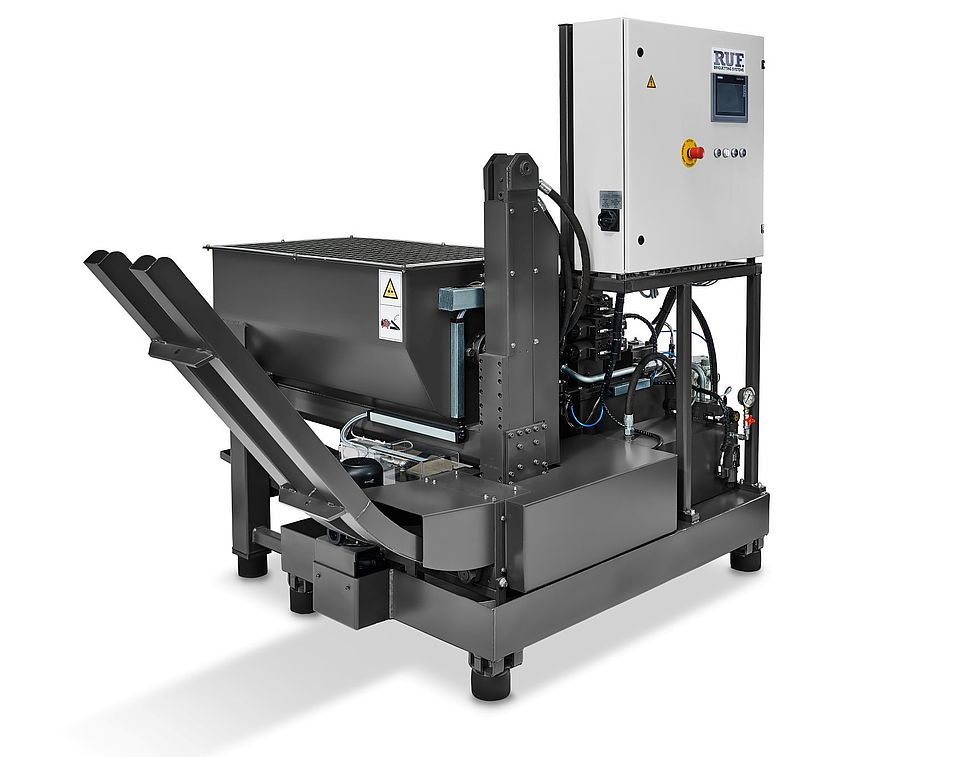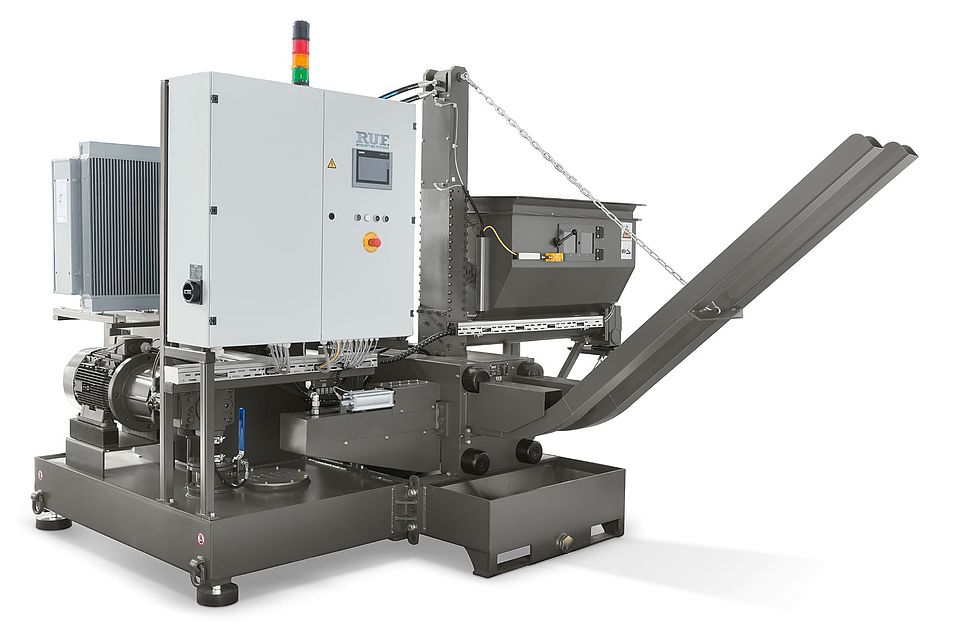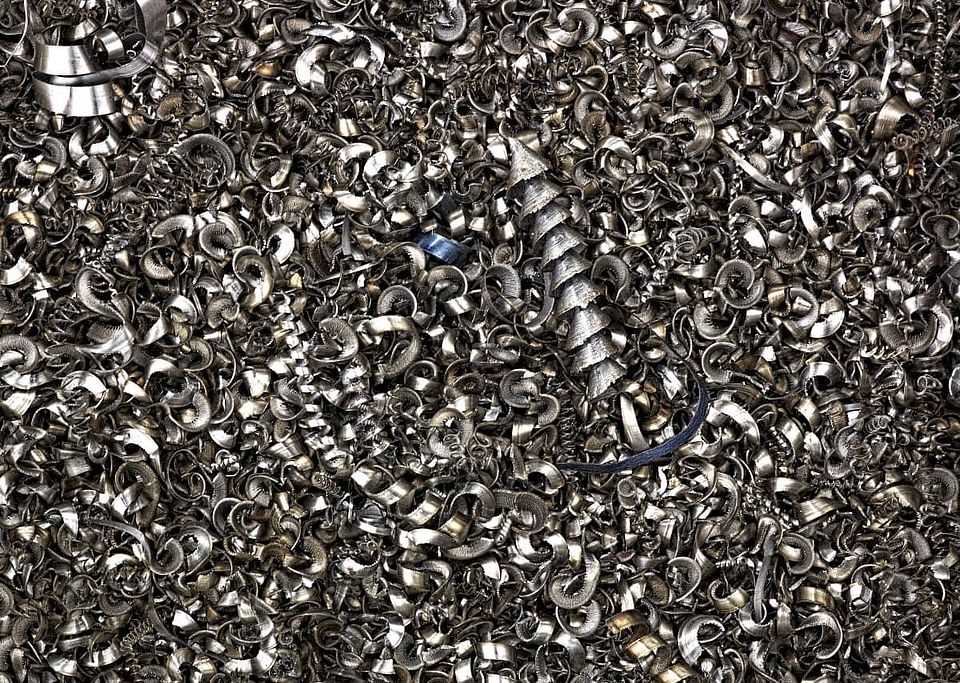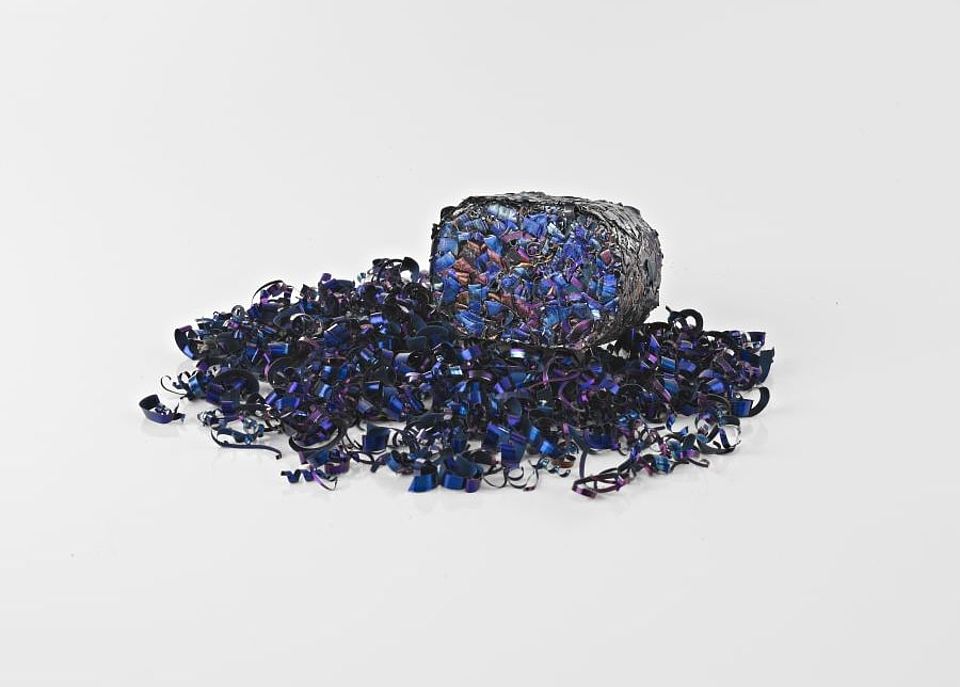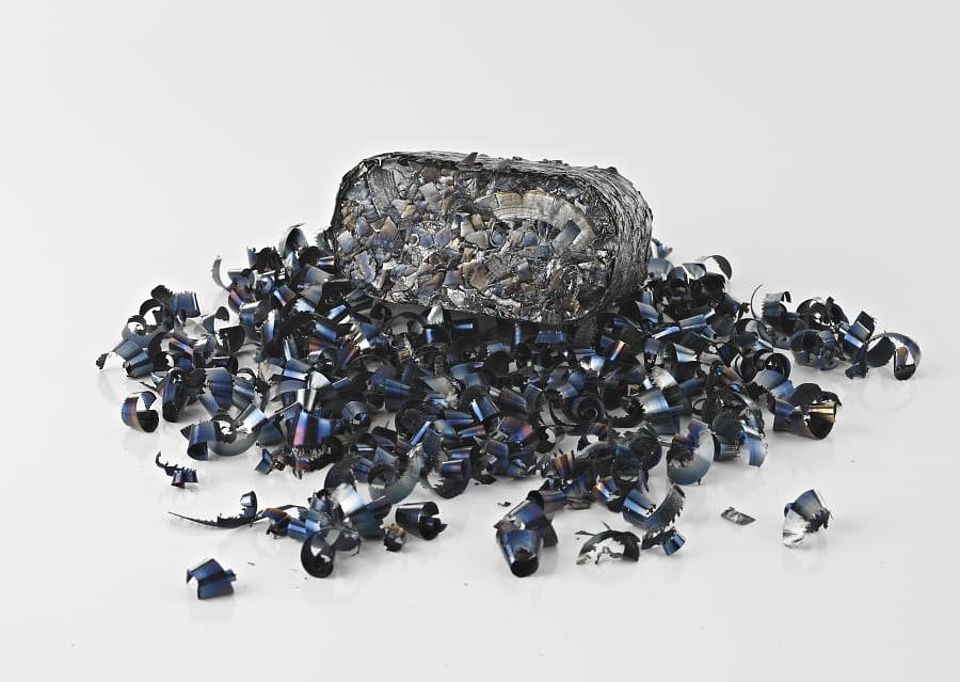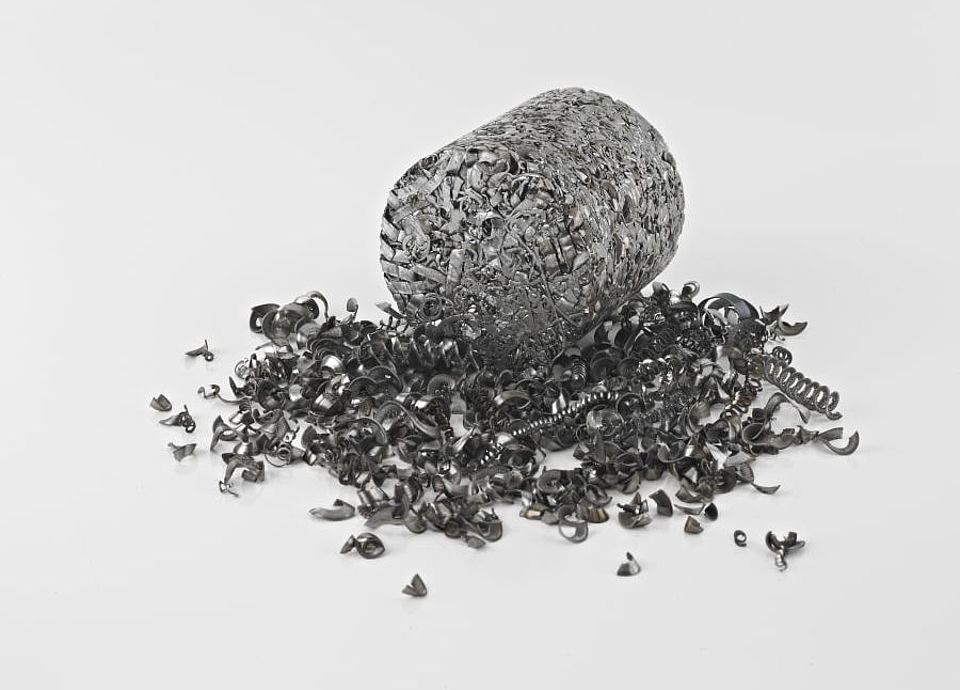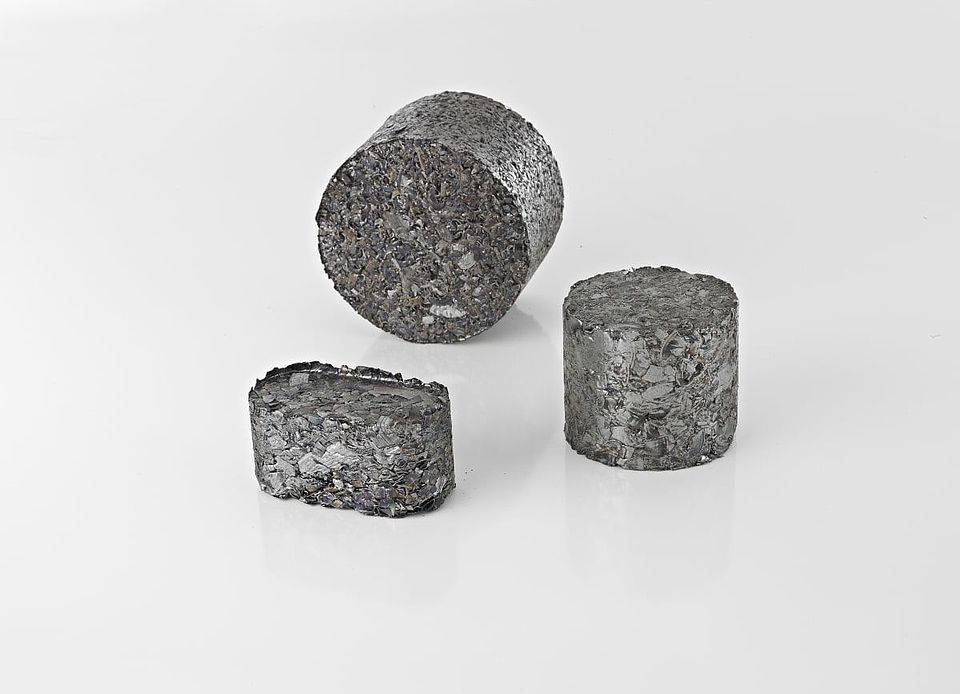Briquetting steel and stainless steel
Whether in mechanical engineering, the automotive industry, aviation, steelworks or foundries: steel chips accure in many machining processes. They are usually contaminated with cooling lubricants like oil or emulsions and often have low bulk densities.
By briquetting alloyed (stainless steel) and/or unalloyed chips you streamline internal logistics, save storage space and costs and also recovers expensive cooling lubricants. A briquetting press for steel chips is therefore not only an ecological but also an economical alternative for chip processing.
Benefits of steel briquetting
- Recovering cooling lubricants
- Simplified internal logistics
- Savings in storage space and costs
- Improved order & cleanliness at the workstation or chip container space
- Increased scrap revenue through separation of alloys
Efficiently briquetting steel chips of any kind
Our hydraulic briquetting presses operate with a specific pressing power of up to 5,000 kg/cm² and are suitable for a wide range of steel types (e.g. stainless steel, structural steel, machining steel, case hardened steel, X5CrNi18-10, tool steel, V2A & V4A, heat treatable steel or duplex steel). In each case the result is compact briquettes.


